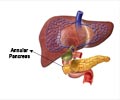Successful eradication of Helicobacter may not prevent future aggressive gastric lymphoma since resting B cells are left behind.
Stanford, CA -- Successful eradication of Helicobacter may not prevent future aggressive gastric lymphoma since resting B cells are left behind. This was reported by Research led by Dr. Anne Mueller at Stanford University School of Medicine.
The paper by Mueller et al., "The role of antigenic drive and tumor-infiltrating accessory cells in the pathogenesis of Helicobacter-induced MALT lymphoma," appears in the September issue of The American Journal of Pathology.Helicobacter pylori, a spiral bacterium of the stomach, infects more than half of the world's population. It is now widely accepted that, aside from gastritis and ulcers, H. pylori is also a causative agent of gastric lymphoma, specifically gastric B cell lymphoma of mucosa-associated lymphoid tissue (MALT). While antibiotic treatment eradicates the bacteria and promotes tumor regression, the effects of re-infection on disease are more severe.
Dr. Mueller's group used a mouse model of Helicobacter-induced MALT lymphoma that employs H. felis to mimic human disease in the mouse. Mice were infected with H. felis and maintained for 18 months before being assigned to one of three treatment groups: 1) no treatment (primarily infected), 2) antibiotic therapy to eradicate bacteria, or 3) antibiotic therapy followed by re-infection.
As expected, low-grade MALT lymphoma occurred in 35% of all infected animals. However, frank MALT lymphoma was more prevalent in re-infected animals (44%) than in primarily infected animals (25%). The significance of the described work is that gastric lymphoma progresses more rapidly upon secondary infection. Because resting B cells are left behind following antibiotic treatment, re-infection by H. pylori promotes the existing B cells to progress quickly into tumors. Therefore, it is important that treated patients be carefully monitored for H. pylori re-infection.
Ref: Mueller O 'Rourke J, Chu P, Chu A, Dixon MF, Bouley DM, Lee A, Falkow S: The role of antigenic drive and tumor-infiltrating accessory cells in the pathogenesis of Helicobacter-induced MALT lymphoma. Am J Pathol 2005, 167:797-812
Research was supported by the National Institutes of Health (US), the Emmy-Noether-Program of the Deutsche Forschungsgemeinschaft (Germany), and J National Health and Medical Research Council (Australia).
Advertisement
(Sourece: www.eurekalert.org)
Advertisement
H.Pylori testing recommended in patients with peptic ulcer: Researchers in the United States have found that the practice of testing and treating H.Pylori has steadily increased over the past 14 years. However, they suggested that patients with confirmed peptic ulcer disease should be tested for Helicobacter Pylori(H.Pylori) infection rather than receiving treatment for the infection as a matter of course. Testing was a more appropriate option than empiric treatment in patients with peptic ulcer disease, as the prevalence of H.Pylori was found to be only 36 percent.
Click here to read more:
https://www.medindia.net/news/view_news_main.asp?t=gn&x=1834











